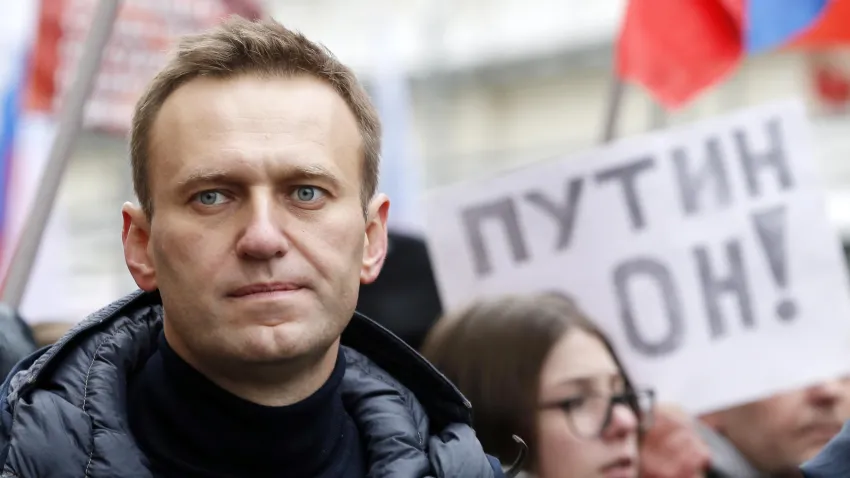Russian opposition figure Alexei Navalny, known for his fierce criticism of President Vladimir Putin’s regime, has passed away in prison, as confirmed by Russia’s prison agency. Navalny, who survived an assassination attempt through poisoning that was attributed to the Kremlin, utilized dark humor and social media to challenge Putin’s authoritarian governance, even while incarcerated. He was 47 years old.
Navalny’s supporters had expressed concern for his well-being as he endured harsh conditions in captivity, particularly in the remote Arctic Circle penal colony nicknamed “Polar Wolf.” Reports indicate that he lost consciousness after a walk and subsequently died.
Just a day prior to his death, Navalny appeared in good spirits during a court hearing via video link from the prison, even jokingly asking the judge to help cover fines imposed on him for alleged misconduct while in confinement.
President Biden, echoing sentiments shared by many Western leaders, held Putin accountable for Navalny’s demise, though the exact circumstances surrounding his death remain unclear. The Kremlin, however, vehemently denied any responsibility.

Following the announcement of Navalny’s death, his wife, Yulia Navalnaya, addressed the Munich Security Conference, casting doubt on the Russian officials’ claims and vowing that if her husband had indeed died in custody, those responsible would be held accountable.
Navalny’s passing comes as a somber reminder of Putin’s firm grip on power in Russia, where dissenters often face imprisonment, violence, or exile. Despite Navalny’s significant influence, analysts speculate that his death might not spark widespread protests due to previous crackdowns on dissent and a sense of apathy among the populace.
Navalny’s team has yet to independently confirm his death, but his lawyer and some relatives are en route to the prison colony for further investigation.
While reports of Navalny’s death circulated, Putin remained silent on the matter, appearing in a televised session with students and workers without addressing the situation.
Navalny gained international recognition for his relentless criticism of Putin, particularly over issues like the war in Ukraine and corruption within the Russian government. His imprisonment and deteriorating health garnered widespread attention and condemnation from around the world.
Despite facing numerous challenges, Navalny continued to advocate for democracy and transparency in Russia, leaving behind a legacy of resistance against authoritarianism.


